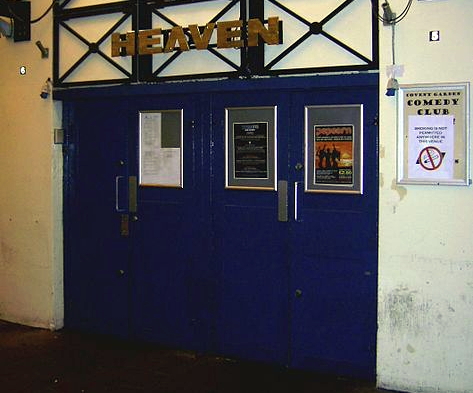-
4-minute read
-
19th May 2019
When to Capitalize Religious Terms
Knowing when to capitalize religious terms can be hell. Or should that be Hell? And there we get to the crux of the matter. Are words from religions always capitalized? Is it only when you use these terms in a religious context? Or should you just say “to heck with it” and stop caring?
Well, before you do that, check out our guide to capitalizing religious terms.
When to Capitalize Religious Terms
As a guideline, you should usually capitalize the first letter of religious terms when they are used as a proper noun. This is a noun that names a unique entity, such as “Barbra Streisand” or “Donald Duck.”
In a religious context, proper nouns may include:
- Religions and religious movements (e.g., Judaism, Methodism)
- Religious figures and deities (e.g., Jesus, Zeus)
- Holy texts (e.g., Bible, Quran)
- Religious holidays (e.g., Easter, Diwali)
- Titles when used with a name (e.g., Reverend Green)
However, there are some cases where the correct capitalization depends on how you’re using a term. We will look at a few of these below.
God, Gods, Goddesses and Proper Nouns
As mentioned above, you should always capitalize the first letter in a proper noun. If you were referring to the Christian deity, for instance, you would need to capitalize the “G” in “God”:
I am here only by the grace of God.
But some words, like “god,” can be either proper or common nouns depending on how we use them. So if you were referring to gods and goddesses in general, or any god or goddess where “god” is not part of their name, you would need to use a lower case “g” instead:
Prior to Christianization, the Anglo Saxons worshipped the Germanic gods and goddesses, including Ēostre, the goddess of the dawn and spring.
Notice that we do, however, capitalize Ēostre in the example above, even though we use a lower case “g” for “goddess.” This is because Ēostre is the name of a goddess, so it is a proper noun.
Other Inconsistent Capitalization
“God” is the most prominent example of something we only capitalize in certain cases. However, there are many religious terms that have second meanings. And you should only capitalize these words if you use them in a religious context, not when they’re used elsewhere.
For instance, we would capitalize “Catholic” in “the Catholic Church.” But “catholic” can also mean “all-embracing.” And we would not use a capital “C” to write about someone with interests in a range of seemingly unrelated things (i.e., someone with “catholic tastes”).
Find this useful?
Subscribe to our newsletter and get writing tips from our editors straight to your inbox.
Subscribe to Beyond the Margins and get your monthly fix of editorial strategy, workflow tips, and real-world examples from content leaders.

Likewise, we would capitalize the “M” in “Mass” if we were talking about the religious ceremony. But we would not usually capitalize the same word when using it as an adjective in “mass market” or “mass transit.” It pays, then, to double check whether religious terms have other uses.
Holy Pronouns
In the past, it was common to capitalize the first letters of pronouns when referring to religious figures. This is known as reverential capitalization. For instance, if we used “his” to refer to God, we might capitalize the “H”:
Our hearts shall rejoice in God and His holy name!
This is quite unusual in modern writing. However, if you do use reverential capitalization, there are two key rules to follow:
- Only apply it to pronouns that refer to deities and divine beings.
- Apply it consistently throughout your writing.
You can apply reverential capitalization in other situations as well, but it is most common with pronouns.
To ensure consistency, you may also want to have your writing proofread. But if you do, let your editor know which terms you’ve chosen to capitalize.
Heaven and Hell
Finally, we have heaven and hell. As a rule, you do not need to capitalize these terms. This is true even when referring to the Christian concepts of “heaven” and “hell.” Take Matthew 5:18 from the NIV Bible, for instance:
For truly I tell you, until heaven and earth disappear, not the smallest letter, not the least stroke of a pen, will by any means disappear from the Law until everything is accomplished.
However, some religious institutions do prefer to capitalize the words “Heaven” and “Hell.” And you should always capitalize ‘Heaven’ when referring to the famous gay nightclub in London.

(Photo: Nick Cooper/wikimedia)
The capitalization of “Heaven” is, in fact, one of the few areas where evangelical Christians and the LGBT+ community truly see eye to eye. And that, at least, should be celebrated.




